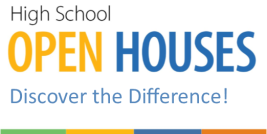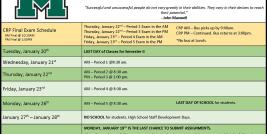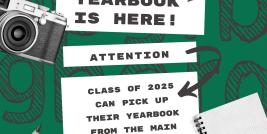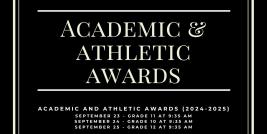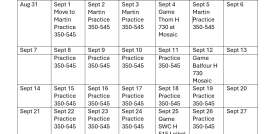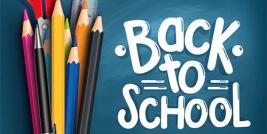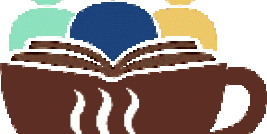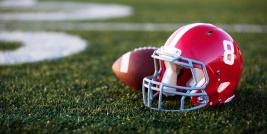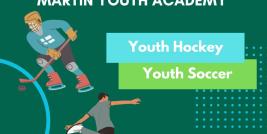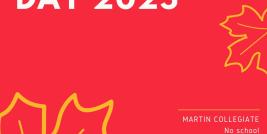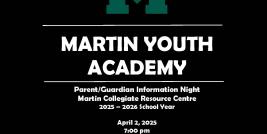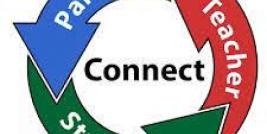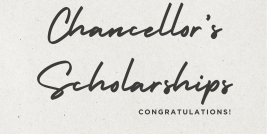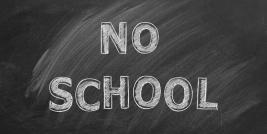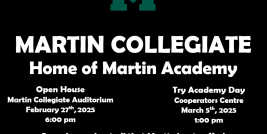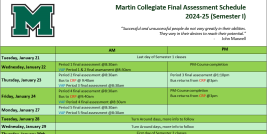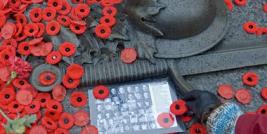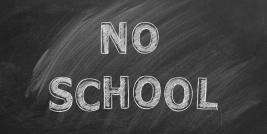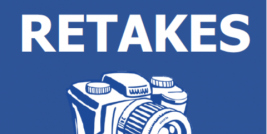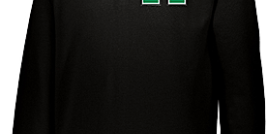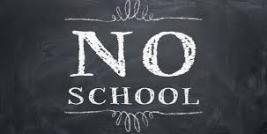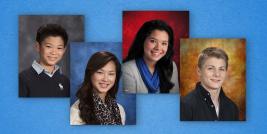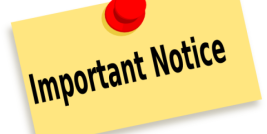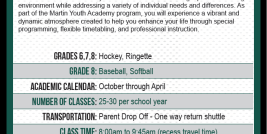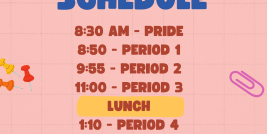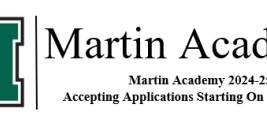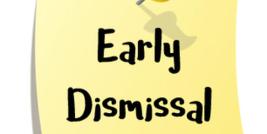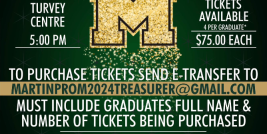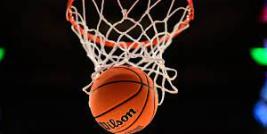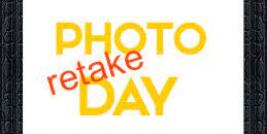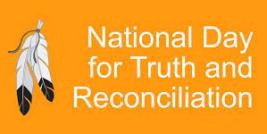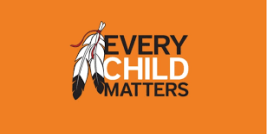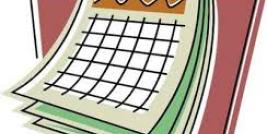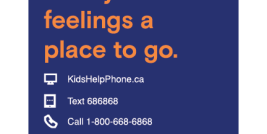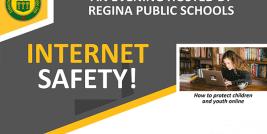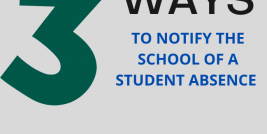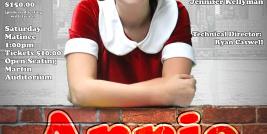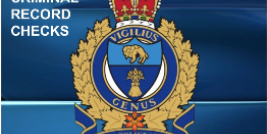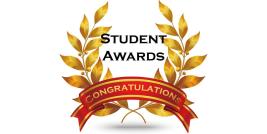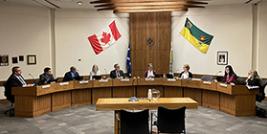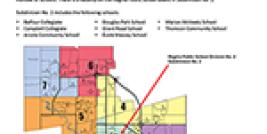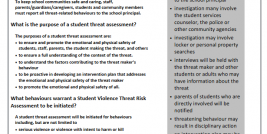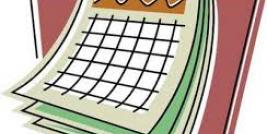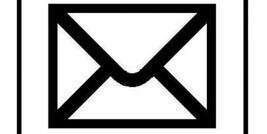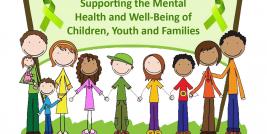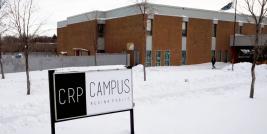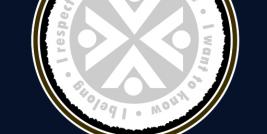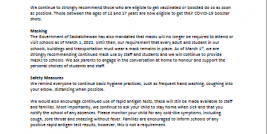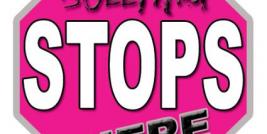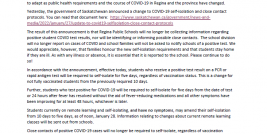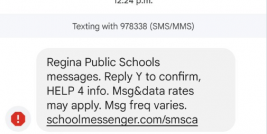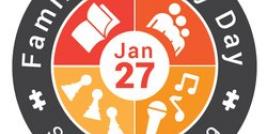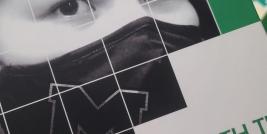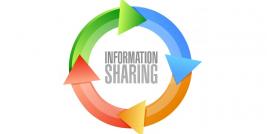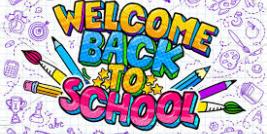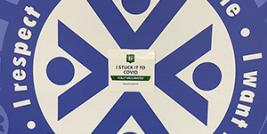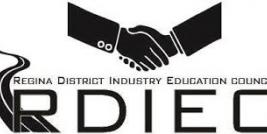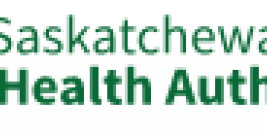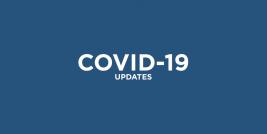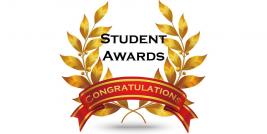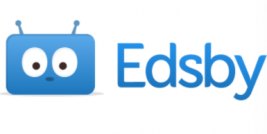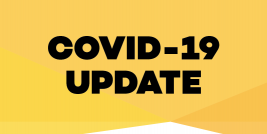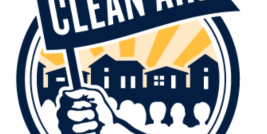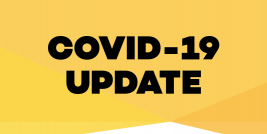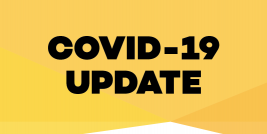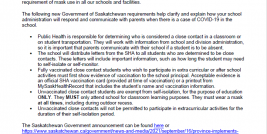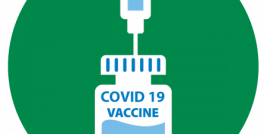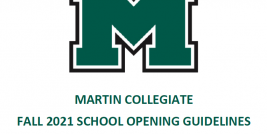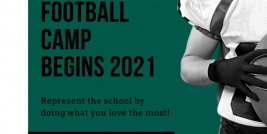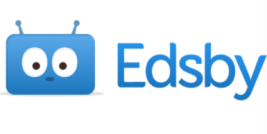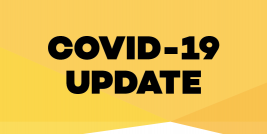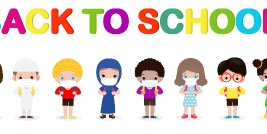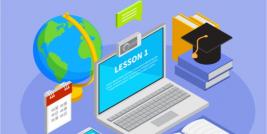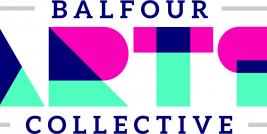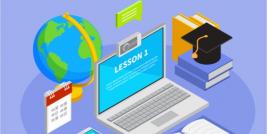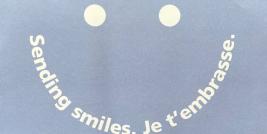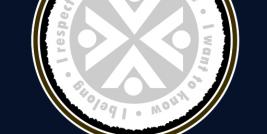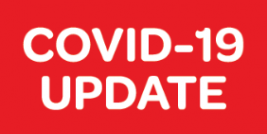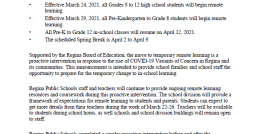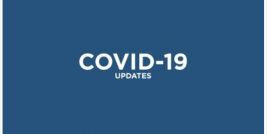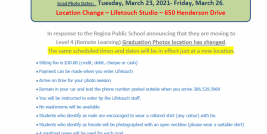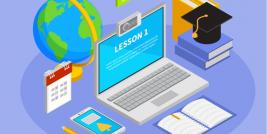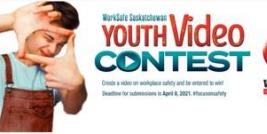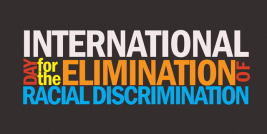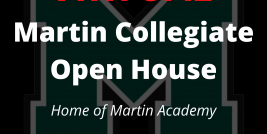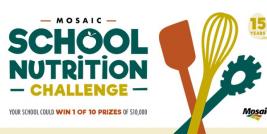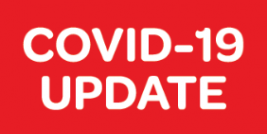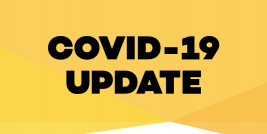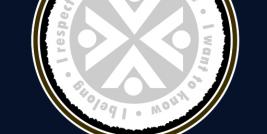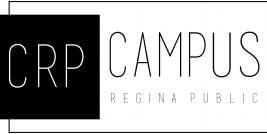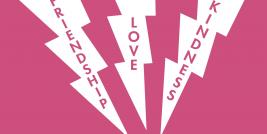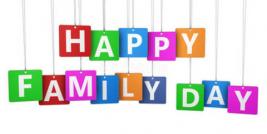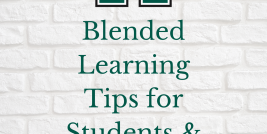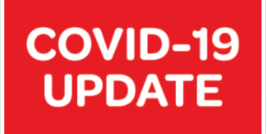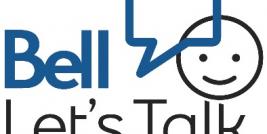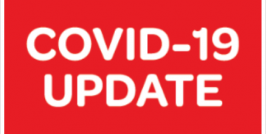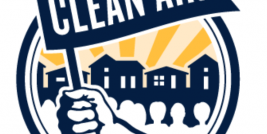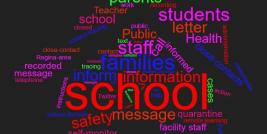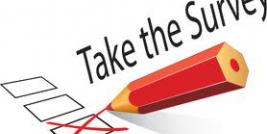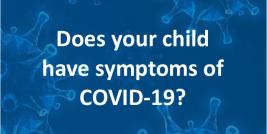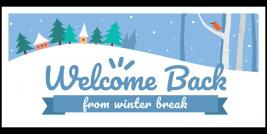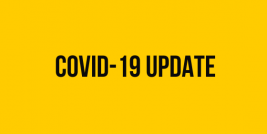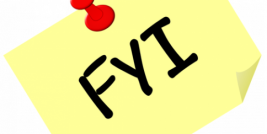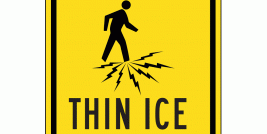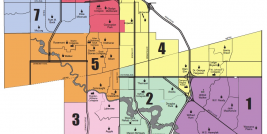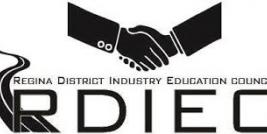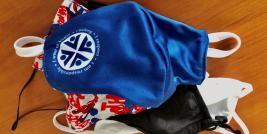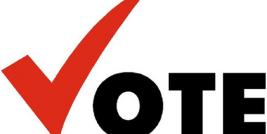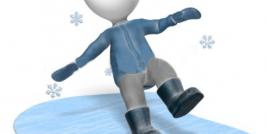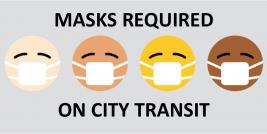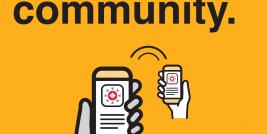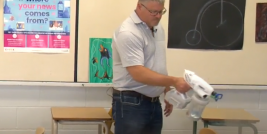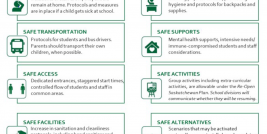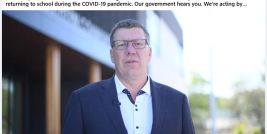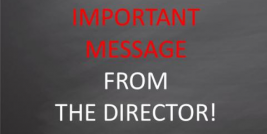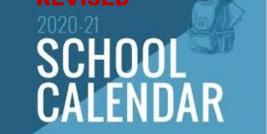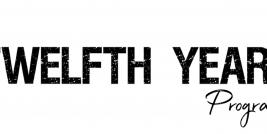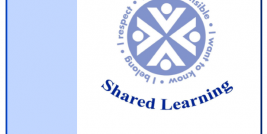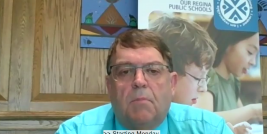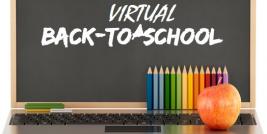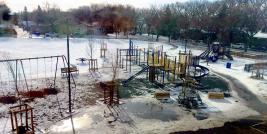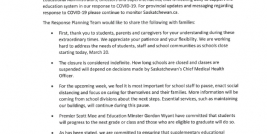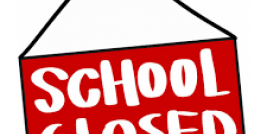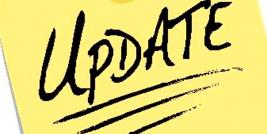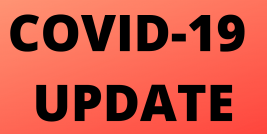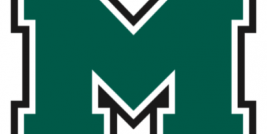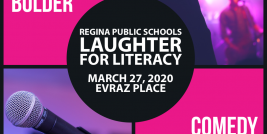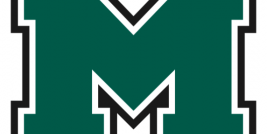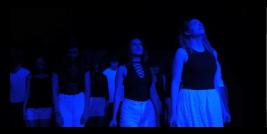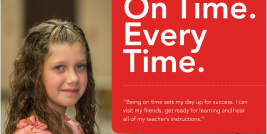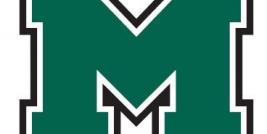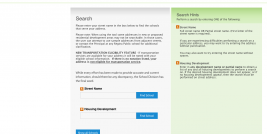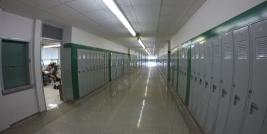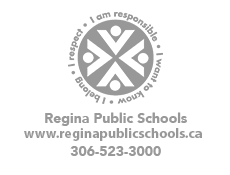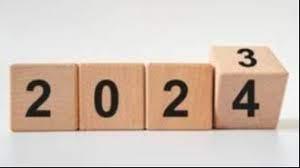
Martin Collegiate
2023 – 2024
Diversity, Equity, & Inclusion
Regina Public Schools is committed to ensuring a safe, inclusive, equitable, and welcoming environment for all members of the school community, regardless of race, color, sex, religion, national origin, sexual disability, real or perceived sexual orientations, gender identities, and gender expressions.
All students enrolled in Regina Public Schools are responsible for modelling our shared values of belonging, respect, and responsibility by:
- Modeling respect for all sexual orientations and gender identities.
- Understanding that equity and inclusive principles apply to all sexual orientations and gender identities.
- Using inclusive and respectful language and approaches in all interactions with students, staff, and families.
- Assuming responsibility for examining and changing behaviours to be consistent with equity and inclusive expectations.
- Reporting matters of harassment and discrimination in compliance with Regina Public Schools’ and Martin Collegiate’s policies and procedures.
Students must be aware that their actions and words have the power to harm or help others. What they allow to happen also has the power to harm or to help others. Students are encouraged and supported in learning about and understanding each other, building relationships, and strengthening our school community. Remarks and actions that negatively impact members of our school community are not acceptable. Staff will respond to these occurrences in a serious and timely manner.
PRIDE Advisory Program
All Regina Public High Schools have a student advisory program in place. Educational research and practice overwhelmingly demonstrates that when an advisory program is in place students do better at school. While in Advisory, students and their advisor will work together to:
- Develop a greater sense of belonging;
- Regularly monitor attendance and academic progress and communicate with students and parents;
- Develop an online portfolio for career and planning and to track academic progress;
- Enjoy a smoother transition to high school and from high school to post-secondary education and work;
- Acquire life skills that will be applied now and in the future.
Martin Collegiate's advisory program is referred to as PRIDE. As Martin Monarchs, this acronym stands for Personal Responsibility In Developing Excellence. Lions, like our school mascot, live in a PRIDE. It is our hope that students at Martin find connection and belonging throughout their four years of high school in their PRIDE grouping. A student's PRIDE teacher is the primary contact point for the student and their family and caregivers.
Teachers at Martin Collegiate will act as an Advisor to a small group of students in a specific grade. All students in grades 9-12 will meet with their teacher advisor for fifteen minutes each day. This approach will allow every student to become very well known to at least one adult in the building. The Advisory teacher also becomes a sustained contact point and conduit of information for parents.
Student Expectations
Regina Public High School Attendance Strategy and Intervention Plan
School attendance is both a right and a responsibility. School division teams actively partner with students and parents in the task of ensuring students meet or exceed the attendance requirements of Regina Public Schools and the Saskatchewan Education Act, 1995. RPS is committed to the full implementation of sections 156 to 162 of the Saskatchewan Education Act, which clearly defines student attendance as a responsibility that is shared among parents, students, teachers, principals and the Board of Education.
Regina Public School staff recognizes that consistent attendance, academic success, and school or grade completion have a positive correlation. The Attendance Strategy and Intervention Plan is not intended as a punitive measure. It aims to provide direction and to involve all stakeholders in achieving consistent attendance and therefore academic success for all students. Accurate course attendance records are imperative to the process.
The entire Regina Public High Schools Attendance Strategy and Intervention Plan is available on the RPS website.
RPS High School Attendance Protocols
Students who are aged 16 and older
- After 5 course absences, the Advisory teacher will contact home to inform the parents/guardians. The student will meet with the Advisory teacher to discuss attendance.
- After 10 course absences, a designated administrator/ guidance counsellor/ Indigenous Advocate from the attendance team will reach out to the parent(s)/guardian(s). The parent(s)/guardian(s) will be informed that the student is at risk of being withdrawn from the class. The student and his/her parent(s)/guardian(s) will be asked to meet with the attendance team.
- After 20 course absences, the student may be withdrawn from the course. A standard letter of notification will be sent to the parent(s)/guardian(s) informing them that the student has been withdrawn from the course and the possibility of a referral to the Learning & Re-Engagement Centre or Pre-Adult Campus (if 17).
- After missing 20 consecutive DAYS of school, the student may be withdrawn as per the Ministry of Education guidelines.
- A student who has been withdrawn from a course may re-enroll in that course the next semester.
Students Who Are Under 16
- After 5 course absences, the Advisory teacher will contact home to inform the parents/guardians. The student will meet with the Advisory teacher to discuss attendance.
- After 10 course absences, a designated administrator/ guidance counsellor/ Indigenous Advocate from the attendance team will reach out to the parent(s)/guardian(s). The parent(s)/guardian(s) will be informed that the student is at risk of being withdrawn from the class. The student and his/her parent(s)/guardian(s) will be asked to meet with the attendance team.
- After 20 course absences, the student may be withdrawn from the course. A standard letter of notification will be sent to the parent(s)/guardian(s) informing them that the student has been withdrawn from the course. An alternate plan may be formulated ex. Tutorial or the possibility of a referral to the Learning & Re-Engagement Centre (if 16).
- After missing 20 consecutive DAYS of school, the student may be withdrawn as per the Ministry of Education guidelines.
Assessment
The Regina Public School division defines assessment as the systematic process of gathering evidence of what students can do in relation to the broad goals of education or the specific goals of an educational program. Assessment includes methods developed at the school, district, provincial (and international) levels. Broadly stated, there are three types of assessment practices used in schools - Assessment FOR Learning (Diagnostic), Assessment AS Learning (Formative), and Assessment OF Learning (Summative).
Assessment FOR Learning (Diagnostic)
Assessment for learning measures where a student is prior to instruction. The information informs the teacher’s instructional practice to enhance student learning. When teachers access students in an ongoing manner by employing regular or specifically designed techniques (such as conversations, observations, and collecting products), it is possible to discover what students understand to date and where teachers can take the leaning from that point. These assessments are descriptive and give information to teachers about both areas of strengths and areas that need further development. Assessment for learning involves learners receiving feedback during their learning.
Assessment AS Learning (Formative)
Assessment as learning describes how assessment can be understood and internalized by students to think about and refine their learning. When students understand and use criteria independently, they are learning how to think about their own thinking and learning. These assessments are descriptive and have students using well-developed criteria and descriptions to identify their own areas of strength and those that need further development.
Assessment OF Learning (Summative)
Assessment of learning measures what learning has taken place at a particular point in time. When students are demonstrating what they know at the end of a unit, or a term, or in a more formalized test, this is a summary of their learning at that particular time. The most relevant assessment for classroom practices are those designed to match the classroom curriculum. These assessments are evaluative and are a snapshot of learning at a given point.
Evaluation Procedures
Assessment and evaluation are integral components of the teaching-learning cycle. Effectively planned assessment and evaluation promotes learning, builds confidence and develops students’ understanding of themselves as learners and also improves and guides future instruction and learning. (Renewed Curricula: Understanding Outcomes, 2010, SK Ministry of Education)
The assessment of student progress in relation to outcomes outlined in programs of study is important for the following reasons:
· Teachers will use this information to inform instruction, intervention plans and to craft learning activities that are appropriate for all students.
· Allows for reporting student progress clearly to students and parents.
· Aids in decision making regarding student placement.
· Program effectiveness can be evaluated and programs revised to improve student learning.
Outcome Based Assessment
Grades 9-12 will report grades as a final percentage. For several years, grade 9 students also received levels of achievement for provincial outcomes. While the division is still committed to outcomes-based reporting in grade 9, we will be putting the practice on pause for the 2023-2024 school year.
Expectations for teacher reporting
Effective summative assessment strategies are aligned with curricular outcomes, emphasize the most recent and consistent evidence of learning, are respectful of student diversity, and are used to make decisions about students based on a variety of evidence.
- Course outline and mark breakdown must be in the Edsby gradebook.
- Assessment is updated every two weeks or every 10 hours of course study.
Teachers will use the following Edsby Gradebook codes. Also note that Edsby has more codes than the ones indicated below. This is due to the move to a provincial system. RBE is using only the codes listed below:
|
Edsby Code |
Description / Use |
|
|
The due date has passed. The assignment is not submitted |
|
|
The assignment was submitted on or before the due date |
|
|
The assignment was submitted after the due date |
|
|
The teacher has dropped the grade from the average. DO NOT use this to indicate a Formative Assessment. See note below. |
|
|
The teacher is not expecting a submission. DO NOT enter a grade in this situation |
Minimum number of assessments per reporting period
Assessment is ongoing. Authentic formative and summative assessment enhance the learning environment. A minimum of four assessments per reporting period as determined by the teacher will be reported as feedback to each student. Formative and summative assessment must be represented in every reporting. There will be three formal reporting dates over the course of a semester.
Responsibilities
A clear understanding and communication of the role of all stakeholders in a school is necessary. When all stakeholders work together from a common understanding the result is an effective educational environment.
Role of the School
- Introduce the concepts of personal responsibility, honesty, and integrity in an age-appropriate manner in keeping with curriculum expectations.
- Teach students accepted conventions for referencing the ideas of others in written work.
- Explain expectations of students in relation to assignments, including how assignments will be evaluated, due dates and implications of submitting work after the due date.
- Ensure that tasks evaluated are reflective of curricular outcomes.
- Adapt assignments to suit learning environment, instruction, assessment, and resources and follow documented records of adaptations to meet the needs of individual students.
- Help students meet their due dates for each course.
- Communicate, in a timely fashion, with the student(s) and parent(s)/guardian(s) to discuss issues related to incomplete work
- Provide marks to students and families on the three established reporting dates.
- Assess, return, and review assignments. This includes submitting marks and indicating the status of assignments as per codes.
- Provide students with an opportunity to complete assignments or alternative assignments, for full credit.
- Offer credit completion to qualifying students.
- Ensure the final week of each semester is free from cumulative assessment.
- No final exam will exceed 20% of the overall mark.
- Schools will develop a plan to ensure that students understand appropriate referencing and avoid common pitfalls every semester.
Role of the Parent/Guardian
- Discuss examples of acceptable and unacceptable academic behavior with their children.
- Support their children to complete assignments by ensuring that schoolwork is a priority, making time and space for schoolwork, discussing due dates and expectations for assignments, and encouraging their child to develop a plan for completing work on time.
- Model respect for school policy and teacher guidelines regarding assignments
notice and praise positive behaviours, such as finishing work on time and taking responsibility for one’s own work, and offer helpful and constructive feedback to their children to assist them in developing personal responsibility for their school work. - Encourage their students to assume responsibility for their own learning, including getting to school and class on time, attending school regularly, submitting work on time, and doing their best on tests and assignments.
- Communicate with teachers if clarification is required regarding assignments and grades.
Role of the Student
- Assume responsibility for their own learning, including getting to school and class on time, attending school regularly, submitting work on time, and doing their best on tests and assignments
- Take personal responsibility to be aware of the short and long-term consequences of
submitting late assignments and communicate directly with the subject teacher if an extension is required - Document their sources of information properly by using footnotes or other references, and place a bibliography or list of references at the end of the assignment to indicate the sources used
- Take advantage of the scheduled opportunities to complete missed work, such as demonstrating learning outside of class time in the presence of the subject teacher or in homework rooms
- Be aware and respect due dates and access gradebook to review their marks
Communicating Student Achievement
A schedule of reporting periods, parent/teacher/student conferences, and final examinations will be established and communicated to teachers, students, and parents at the beginning of the academic year. Subject teachers and advisory teachers communicate student progress, grades, and achievement to parents through Edsby as well as via email, telephone calls, and conferences. Formal parent/teacher/student conferences will occur once per semester and are planned with direction from the administration and facilitated by advisory teachers. Subject teachers may also schedule such conferences when appropriate. Additionally, parents are welcome to contact to the school to discuss their child’s progress if concerns arise.
Late Assignments and Zeroes on Assignments
Teachers will publish clear and concise dates and times that they expect assignments to be submitted. All assignment due dates will be displayed in Edsby when the assignment is assigned. All students are expected to submit assignments on time to receive timely feedback to support student learning. While circumstances do exist that delay the submission of assignments, every effort must be made by students to communicate before any assignment is submitted late.
In cases where the teacher and the student disagree about the submission of late work or credit completion opportunities, the student may appeal to school administration. All high schools will provide assignment completion opportunities in the form of a classroom work period, lunch or afterschool homework room, or a homework crush opportunity. Students may be required to complete late assignments in the presence of a staff member. All extensions are limited to seven calendar days following the assignment due date. All assignments handed in within those seven days will be marked within fourteen calendar days of the original due date.
Zeroes are placeholders used when reporting an accurate standing at a particular moment in the class.
Students who are below 50% may continue to hand in assignments until they have achieved a passing grade. Teachers will, on a monthly basis, review all assignments submitted after the seven calendar days and mark assignments for those students with a Gradebook mark below 50%. Students should attend all mandatory assignment completion opportunities to be eligible for consideration. All decisions are subject to review by the administration team of the school.
In order to ensure that teachers are able to provide timely, authentic, feedback, students who miss a scheduled in-class summative assessment, such as a unit test, quiz, or exam may (at the discretion of the teacher) be provided one opportunity to re-take the assessment, with the date and time within the seven days to be established by the teacher.
Academic Integrity
Students who genuinely engage in the learning process position themselves to achieve results that demonstrate successful attainment of outcomes. Students who engage in academic misconduct do themselves a disservice in terms of contributing to a quality learning experience.
Academic misconduct is the use of the ideas, words, structures, and/or any other type of work of another individual without proper citation or acknowledgement. Students participate in academic misconduct when they share work with another student or use their own work for more than one assignment. One the most significant forms of academic misconduct is plagiarism.
(Academic Integrity and Student Responsibility Guidelines, Saskatchewan Ministry of Education, 2011)
Examples of plagiarism
- Submitting an essay/assignment written by someone else, e.g. buying an essay online, downloading an essay from a website, having someone else complete one’s assignment, or copying or using work, including homework, done by another student.
- Quoting or paraphrasing material without citing the source of that material, including but not limited to books, magazines, journals, websites, newspapers, television
programs, radio programs, movies, videos, photographs, and drawings in print or electronic form. - Copying and pasting from the Internet or other electronic sites without citing the source.
- Using and AI tool to generate work that is not your own ideas or writing.
Suspected plagiarism protocol
If a teacher suspects that a student is guilty of plagiarism, the teacher will meet with the student. If the issue is unresolved, the following steps will be taken:
- the teacher will make a written statement indicating the evidence on which the allegation is based
- the student will make a written statement
- the parent/guardian of the student will be informed
- depending on the severity of the allegation, an interview with the teacher, student, parent, and an administrator may take place to determine what action should be taken
Consequences of confirmed plagiarism
Most cases of plagiarism will be dealt with the teacher and/or the principal on an individual basis. Plagiarism must not be viewed as a trivial offence with only minor consequences. It must be viewed as a serious academic transgression.
- be awarded a grade of zero for the assignment/test in question
- be awarded no grade for the assignment/test in question
- be required to complete a different assignment
A file on the incident will be kept in the main office and communicated to the teachers and parents/guardians of the student concerned. Teachers are asked to submit all instances of plagiarism to the main office whether they result in administration involvement or not through email so that the students' activities can be recorded and logged for future reference.
Consequences for plagiarism will be determined through a discussion with the student and teacher. Students are still responsible to demonstrate the outcomes that are plagiarized. School administration will be involved in each case.
Credit Completion
Credit Completion is designed to provide students with both an opportunity to complete credits and to acquire the requisite knowledge, skills and attitudes to be successful with further learning.
Students may be given the opportunity to access Credit Completion if they achieve a minimum of 30% in the course. The decision will be based on a number of factors such as: attendance in class, attendance at assignment completion opportunity, academic integrity, overall effort in class, and the number of courses the student is credit completing at a given time.
The following guiding principles are intended to provide a consistent framework for Credit Completion with all Grade 10 to 12 courses in Regina Public Schools. In order for Credit Completion to be recognized and accepted as a viable alternative learning experience, there must be adherence to all the following:
- Credit Completion is part of the whole school culture and has equal status with other forms of course delivery.
- Credit Completion is not a replacement for effecting and engaging instruction and intervention during the regular course of a semester, including support provided by other teachers (Learning Resource Teachers, etc.).
- Credit Completion is one of several options available to a student.
- Access to Credit Completion must be through the recommendation of the principal (or designate) and agreed to by the student.
- The teacher of the initial program (Subject Teacher) must provide the teacher responsible for Credit Completion with relevant information to be considered when placing a student into Credit Completion.
- A teacher may take on Credit Completion with a student after instructional days are completed. (For example, after the final evaluation day has passed, or even into Semester 2, if the class was in Semester 1.)
- Programs, assignments, assessments, etc. completed by the student in Credit Completion must be pedagogically sound and adhere to the curriculum outcomes.
- Students must have an opportunity to meet course expectations. Students must have an opportunity to demonstrate achievement of course outcomes in a variety of ways.
- The final mark assigned to a student’s work in a course MUST be given by a classroom teacher. In the case of a course requiring accreditation, the teacher must be accredited in the course.
- Schools will be responsible for the guidelines regarding student eligibility for Credit Completion, based upon the guidelines and direction provided in this document.
- The final mark should reflect the achievement of the course expectations.
Technology and Learning
Regina Public School Division values the use of Information and Communications Technology (ICT) that supports student learning. While Martin Collegiate supports the use of personal devices, we also provide shared devices that are available to all students enrolled in our school. It is important that all students use all technology, whether personal or shared, in an appropriate manner.
The following statements are a guide for you in your use of Information and Communications Technology
- I will use all school equipment in an appropriate way that supports my learning.
- I will use social media in an appropriate and positive way.
- I will use only my school provided user accounts when using school equipment.
- I will use school provided devices in a way that does not modify or harm those devices.
- I will use web-based services and applications in a way that supports my learning.
- I will always follow and respect current Canadian copyright laws.
Expectations on the use of technology may differ from class to class. I will respect and follow the expectations of each of my teachers in all of my classes.
Important:
Inappropriate use of Information and Communications Technology involving our school and our students will result in appropriate consequences by School Administration acting in accordance with The Saskatchewan Education Act.
Personal Technology Usage
Electronic devices – PDAs, MP3s, iPods, etc. - at the discretion of the teacher; these devices may be allowed for use during class time pending the class activity. During any evaluation session all devices must be turned off and secured out of sight and out of reach.
Technology and Privacy Expectations
The Regina Public School Division recognizes that technology, when used appropriately, may contribute positively in a number of ways to the school climate and student learning. Administrative Procedure 225 permits a student to use an electronic communication device (i.e. cell phone) equipped with a digital camera to record video, images or sound may only be done with the expressed permission of a supervising staff member and with full advance knowledge and permission of any individual or group being recorded because this constitutes personal information. Student sharing, distribution, broadcasting or posting of personal information to the Internet must comply with Canadian and Saskatchewan law including The Criminal Code of Canada, The Privacy Act and The Local Authority Freedom of Information and Protection of Privacy Act. Recordings or images made secretively and/or used maliciously by a student may result in school disciplinary action up to point of expulsion and may include police involvement.
Approved Dress
Students should dress appropriately for school, as they would for work in an informal service business. Clothing must not be decorated with images or lettering that would be offensive to students, staff, or the public.
Visitors
All visitors to the school are to report to the office.
Smoking/Vaping
Smoking is not permitted in the building or on the school grounds. This includes electronic devices that simulate tobacco smoking.
Parking Lot
Cars are to be parked in an orderly fashion, one space per car. Failure to comply with parking lot rules will result in the loss of parking privileges. Please be respectful of the rules; students do not park in the staff parking lot or fire lane at any time.
Property
The school and school equipment should be treated with the same care as your own valued possessions. The property of others should be treated with respect. All personal property should be labelled with your name and address.
Do not carry large sums of money to school. The School Division does not insure personal property. Cellular devices, electronics, money, and other valuable articles are the responsibility of students.
Cap & Gown
Regina Public Schools supports and acknowledges that the high school graduation ceremony is as an important milestone and celebration of students’ successful completion of their high school education. All Regina Public high schools with grade twelve students will conduct a graduation ceremony. This ceremony is for students who have completed, or are eligible to complete, the requirements for graduation in accordance with the Ministry of Education and school-based criteria. This ceremony has traditionally been referred to as our Cap and Gown Ceremony.
Timetable Changes
Student timetable changes must be arranged through the office. A transfer from one course to another, or the addition of a class to a student’s original selection, is possible only if the timetable permits it and if the request is made a timely fashion.
To discontinue a subject, a student must complete and submit the appropriate form (available at the office), including their request, the parent’s written permission and the subject teacher’s acknowledgement. The student’s original timetable remains in effect pending the approval of the change.
Lockers
Advisory teachers will assign a locker to each student in his/her Advisory class. Please complete the Locker assignment sheet and return to the office completed. Students are reminded that lockers are school property and are subject to search given reasonable grounds.
School Services
Advanced Placement
Advanced Placement (AP) is an international enrichment program. Through the Advanced Placement’s courses and exams, high school students can earn university credit and advanced placement, stand out in admissions process and, more importantly, follow their passion in one or more AP subjects. AP operates on an open access policy meaning that any student can try Advanced Placement course. AP can be a diploma program. Students in Advanced Placement study the regular Saskatchewan curricula with a focus on a more enriched academic program. AP is for all students. AP is all about creating a university-ready culture.
Before students take AP courses in grade 12, they have the option of taking enriched courses. For example, students can take Enriched ELA A10, B10, and 20 to prepare for their AP English Literature and Composition exam in grade 12. These enriched courses are not mandatory to take AP in grade 12.
Students interested in AP 2D Art & Design may also begin working on their concept, main inquiry statement, and portfolio art before grade 12. Students may opt to take AP Visual Art 20 in grade 11, with AP Visual Art 30 and Studio Art 30 in grade 12. Having the extra semester of time to complete the portfolio work is not compulsory but is recommended.
Campus Regina Public
Campus Regina Public is a career-centred program available to all Grade 11 and Grade 12 students registered with Regina School Division. Campus Regina offers two-credit courses that are occupation specific, taught by experienced teachers and industry professionals using state-the-art equipment. Campus Regina Public has a variety of programs, all of which include academic credits, apprenticeship hours, and varied technological certificates. Students from Martin Collegiate who attend Campus Regina are transported each day to their classes at the Campus Regina facilities.
Guidance
The guidance department offers a variety of services to students, teachers and parents. These services include:
- individual counseling aimed at meeting the educational, personal, social and career planning needs of students;
- referral to various outside agencies as needed;
- current information on post-secondary programs as well as vocational materials;
- financial assistance by way of scholarship and bursary information as well as various loan and grant information.
- anyone wishing to book an appointment with a Guidance Counsellor can do so by contacting the guidance office.
Learning Resource
The Learning Resource Program is for students who have been identified as having learning difficulties. A variety of service options are available and range from supporting teachers in making adaptations, monitoring students’ progress, providing consultative services, as well as regularly scheduled tutorial classes.
English as an Additional Language
The EAL Resource Teacher supports students with language learning. EAL students are provided sheltered literacy classes and tutorials. Students who do not yet have the necessary English literacy skills to be successful in the academic program may receive sheltered literacy classes. Once students have acquired the necessary English literacy skills, they are integrated into the regular academic program with tutorial support.
Transition Room
This program is designed to support students who are struggling to meet the demands of a regular timetable. Students who are selected for this program work in an supportive environment where the restrictions of the timetable and school year are altered or removed.
Extra-Curricular Activities Policy
Rationale
Martin Collegiate strives to instill the shared values of Regina Public Schools. We have always believed that success in academic studies is our primary goal and focus. In addition, we recognize that student participation in athletics, the arts and other activities and clubs is an essential part of their high school experience. The term “Extra-curricular” describes those activities that provide opportunities for students to explore and expand their skills or interests in the fine arts, athletic, cultural/social, leadership or technical areas. It is understood that these experiences take place outside of the regular class time.
This policy was developed to provide consistent guidelines for all involved in the extra-curricular program. It outlines realistic expectations and logical consequences for students and clarifies the school’s position for staff, students and parent/guardians. The purpose of the policy is to be educative and proactive rather than restrictive, punitive and reactive. The primary focus is for students to remain successful in their studies and enjoy a high degree of success in the activity. All students have access to a wide selection of activities that require varying commitments of the time. Students are expected to meet the time commitment expectations of the activity they participate in, maintain focus on their studies and be a positive representative of Martin Collegiate at all times.
Requirements and Responsibilities
Attendance:
- Students must maintain regular attendance at all of their scheduled classes.
- Students are ineligible to participate in extra-curricular activities on days in which they do not attend all of their scheduled classes. In order for an exemption to apply, a parent/guardian must make contact with a school-based administrator on the day of the activity to authorize the absence.
- Except in the case of actual injury, students do not require recuperation or recovery time following participation in extra-curricular activities. Missing classes the day after an activity may result in suspension of that student’s eligibility to participate in that extra-curricular activity.
Academic:
- Students must maintain satisfactory academic progress.
- The teacher responsible for the activity or a designate will monitor each student’s academic progress. The monitoring process should be completed by September 30th, mid-term of semester one, January 28th and mid-term of semester two.
- At any time during a semester, a student who has failed or is failing two classes can be placed on extra-curricular probation for ten school days. During this time, a student’s academic progress will be monitored and he/she will be allowed to continue to participate fully in the activity. It is hoped that the student will use these days to re-focus and renew their commitment to their studies.
- If at the end of the probationary period, the student is still failing two classes, then the student will be placed on extra-curricular suspension for 10 school days. The time for suspension can be reduced only if the student is passing all classes. During extra-curricular suspension, a student cannot participate in any aspect of the activity.
- The Eligibility Committee will meet to discuss every extra-curricular suspension.
- If at the end of extra-curricular suspension, the student is still failing two or more classes, then the student may be removed from the activity.
- If a student is placed on extra-curricular probation twice in the same school year, the Eligibility Committee will review the student’s situation.
Commitment:
- Students must fulfill their commitments to extra-curricular activities.
- A student and the teacher advisor/coach of an activity may mutually agree to the withdrawal of a student from the activity without affecting the student’s eligibility to participate in other activities.
- If a student withdraws from an activity without consultation with the teacher advisor/coach, he/she may not be permitted to participate in an activity concurrent with the one discontinued. Furthermore, that student may be ruled ineligible to participate in another activity.
Behavioural:
- Students must demonstrate behaviour consistent with the values of the school within the classroom and at any school-related activity.
- A student who behaves in a manner inconsistent with the values of Martin Collegiate or who brings discredit to the school will be reported to the Eligibility Committee. Such behaviour may result in suspension from participation in activities.
- The use or possession of drugs or alcohol while on school premises or at any school-related function will result in a review by the Eligibility Committee of the involved student’s eligibility to participate in activities including suspension from activities.
Monitoring and Consequences:
- The Eligibility Committee consists of the principal (chair), vice-principal, guidance counsellor, athletic director, SRC advisor and coach/supervisor. They will meet to discuss:
- Every extra-curricular suspension.
- If a student is still failing two classes at the end of extra-curricular suspension.
- If a student is placed on extra-curricular probation twice in the same school year.
- At the discretion of the teacher advisor/coach, classroom teacher, and/or school-based administrator.


